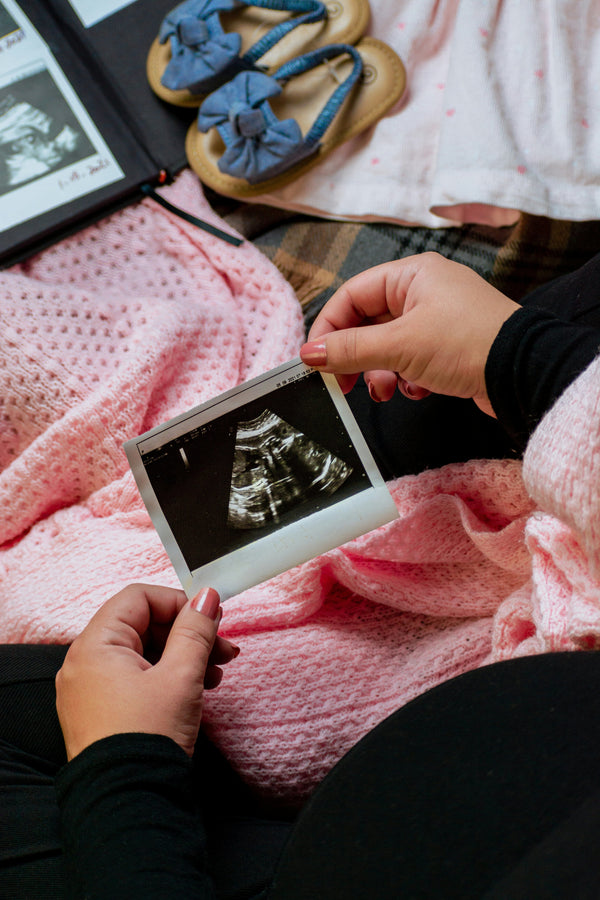Article
Choline During Pregnancy: Supporting Health Across Trimesters
Posted on
Pregnancy is a time of incredible change, both for your body and your growing baby. Proper nutrition is crucial, and while many nutrients get attention, choline is often overlooked. Yet it plays a pivotal role in your baby’s brain, spine, and nervous system development, as well as supporting maternal liver health.
Choline works alongside folate to support neural tube formation, reduces the risk of birth defects, promotes foetal brain growth, and continues to nourish your baby through breastmilk postpartum. Let’s explore why choline is vital at each stage of pregnancy and after birth.
First Trimester: Laying the Foundations
Why choline matters
The first trimester is critical for your baby’s development. This is when the neural tube forms, which will become the brain and spinal cord. Adequate choline intake helps reduce the risk of neural tube defects such as spina bifida. It also supports the early formation of brain structures and maternal liver function.
How much you need
The recommended intake for pregnant women is 450 mg of choline per day.
Second Trimester: Supporting Rapid Growth
Why choline matters
During the second trimester, your baby’s nerve cells are multiplying rapidly, and the brain continues to grow. Choline contributes to the production of cell membranes and supports ongoing neurological development. This is also a key stage for maternal liver health as your body metabolizes more nutrients to support your baby.
How much you need
Maintaining 450 mg of choline per day remains essential during this stage.
Third Trimester: Preparing for Life Outside the Womb
Why choline matters
In the third trimester, your baby’s brain undergoes rapid maturation, particularly in the hippocampus, which is essential for memory and cognitive function. Choline also continues to support maternal liver function and overall energy metabolism.
How much you need
The recommended daily intake increases slightly to 450 to 500 mg per day, reflecting your baby’s growing needs.
Postpartum: Supporting Recovery and Breastfeeding
Why choline matters
After birth, your body continues to need choline to support maternal liver health and breastmilk production, providing your newborn with nutrients crucial for ongoing brain and nervous system development. Choline also aids in maternal cognitive function and recovery.
How much you need
For breastfeeding mothers, choline needs rise to 550 mg per day.
Choline-Rich Foods
While supplementation is important, you can also support your intake through diet. Foods high in choline include
- Eggs, especially yolks
- Beef and chicken liver
- Fish such as salmon and cod
- Cruciferous vegetables like broccoli, cauliflower, and Brussels sprouts
- Legumes such as kidney beans and soybeans
- Nuts and seeds including peanuts
Eating a variety of these foods can help provide natural choline, though it is often difficult to reach the recommended intake through diet alone, especially when appetite changes during pregnancy.
Why Supplementation is Key
Because choline is so crucial at every stage from neural tube formation to brain growth and postpartum recovery, it can be challenging to meet your needs through food alone. Supplementation delivers targeted support for your baby’s development and your own health.
Our 400 mg choline (choline bitartrate) supplement has been formulated to be used alongside the Zita West Vital Essence range, which increases choline levels progressively across trimesters to match your baby’s growing needs. Postnatally, Revital Essence provides continued support during breastfeeding and recovery. This tailored approach ensures that both you and your baby receive the optimal amount of choline throughout pregnancy and beyond.
Further reading
-

Is this normal in trimester 2?
Pregnancy can feel like a constant swirl of questions and new experiences. The second trimester is often called the “honeymoon... -

Myths About Early Pregnancy Safety
Trigger Warning: This post discusses early pregnancy, including topics such as miscarriage and common symptoms. The first twelve weeks of...


